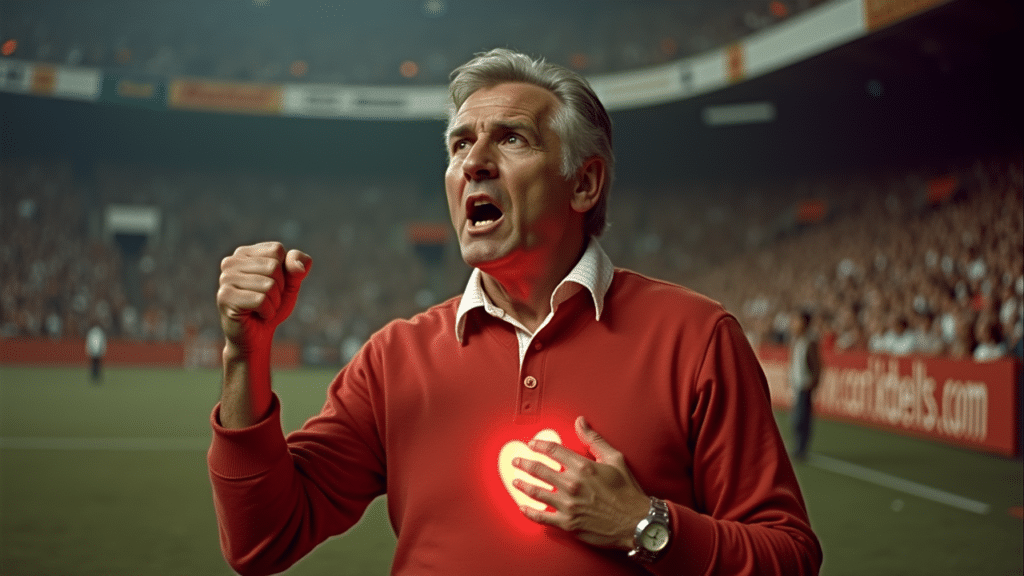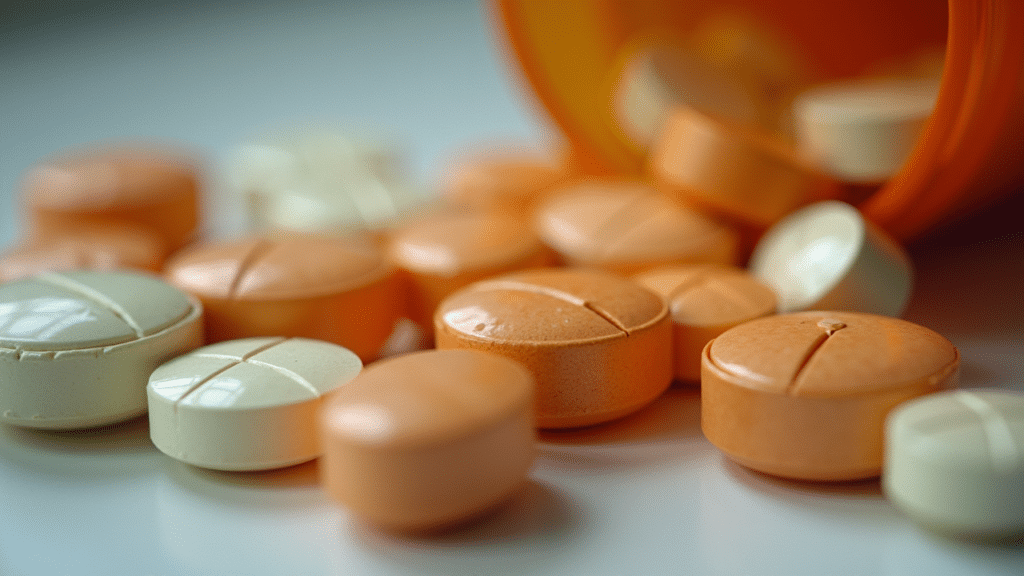Introduction: It’s Not Just Burgers and Cigarettes
When people think of heart attacks, they usually picture clogged arteries from years of eating fast food or an older guy clutching his chest after years of smoking. But here’s the truth: heart attacks can strike in unexpected ways—and sometimes, seemingly harmless things can be the trigger.
Yes, we’re talking about things like cold weather, extreme emotions, and even a bad case of the flu. Some of these culprits might shock you, but understanding them could literally save your life. So, let’s get into it—here are some of the strangest, most surprising things that can send your heart into crisis mode.

Extreme Emotions—Yes, Even Happiness
We all know stress and anger are bad for the heart. But did you know that even extreme happiness can trigger a heart attack?
There’s actually a condition called “broken heart syndrome” (Takotsubo cardiomyopathy) where sudden emotional stress—good or bad—causes the heart to weaken temporarily. It mimics a heart attack, with chest pain and shortness of breath, and can sometimes be fatal.
Real-Life Example:
In a bizarre twist, researchers have found that major life events like winning the lottery, getting a surprise party, or even your team winning the Super Bowl can trigger heart issues. So, while joy is good, maybe don’t go overboard with the celebrations.
Prevention Tip: If you have heart issues, manage emotions with deep breathing, meditation, or even therapy. Balance is key.

Cold Weather—Why Shoveling Snow Is Risky
Winter isn’t just rough on your skin—it’s rough on your heart, too. Cold weather constricts blood vessels, making it harder for blood to flow and raising blood pressure. Combine that with sudden physical exertion (like shoveling snow), and it’s a recipe for a heart attack.
Did You Know?
Heart attacks spike in winter, especially within the first 30 minutes of being outside in the cold. Your heart has to work harder, and if you already have plaque buildup, it can rupture and cause a blockage.
Prevention Tip: Warm up before strenuous activity, dress properly, and take breaks. If you’re at risk, maybe hire the neighbor’s kid to shovel instead.

Intense Exercise—If You’re Not Used to It
Exercise is great for your heart—until you overdo it. If you go from couch potato to weekend warrior, you might be putting yourself at risk.
Sudden, high-intensity exercise can trigger a heart attack in people who aren’t used to it. Your heart isn’t ready for that level of stress, and it can lead to abnormal rhythms or even artery blockages.
Example:
There are cases of people suffering heart attacks after a sudden burst of activity—whether it’s lifting too heavy at the gym or deciding to run a marathon without proper training.
Prevention Tip: If you’re new to exercise, start slow. Gradually increase the intensity and listen to your body. And if you have risk factors? Talk to a doctor before jumping into extreme workouts.

Big, Heavy Meals—Your Heart Hates Food Comas
Ever felt sluggish after a big meal? That’s because your body redirects blood to your digestive system, which can increase heart strain. If your arteries are already compromised, this can trigger a heart attack.
The Science:
- High-fat meals can cause a temporary spike in blood pressure and inflammation.
- Eating large amounts in one sitting can lead to a surge of stress hormones, increasing heart risk.
Prevention Tip: Instead of eating one giant meal, try smaller, balanced portions. And don’t eat a heavy meal right before bed.

Sleep Deprivation—Your Heart Needs Rest, Too
Not getting enough sleep? Your heart notices. Chronic sleep deprivation is linked to high blood pressure, increased stress hormones, and a higher risk of heart attacks.
The Numbers:
Studies show that less than 6 hours of sleep per night increases the risk of a heart attack by 20-50%. Your body needs sleep to repair itself—especially your heart.
Prevention Tip: Prioritize 7–9 hours of quality sleep. Cut back on caffeine late in the day and stick to a sleep routine.

Air Pollution—It’s Worse Than You Think
You might think of pollution as just a lung problem, but it’s actually a heart attack trigger. Tiny particles in smog and car fumes can enter your bloodstream, causing inflammation and plaque buildup.
Who’s at Risk?
- People with existing heart disease
- Those living in urban areas with heavy traffic
- Anyone with high blood pressure or cholesterol
Prevention Tip: If you live in a polluted area, try to exercise indoors on high-smog days and consider wearing a mask when air quality is poor.

Certain Medications—Even Over-the-Counter Ones
Not all medications play nice with your heart. Some decongestants, painkillers, and even antibiotics have been linked to increased heart attack risk.
Watch Out For:
- NSAIDs (like ibuprofen and naproxen) – Can increase blood pressure and clot risk.
- Decongestants (pseudoephedrine) – Can raise heart rate and blood pressure.
- Some antibiotics (like azithromycin) – Have been linked to sudden cardiac events in at-risk patients.
Prevention Tip: Always check labels and talk to your doctor before taking new meds, especially if you have heart disease.

Conclusion: Protecting Your Heart Starts with Awareness
A heart attack isn’t just about diet and exercise—it can be triggered by weather, emotions, sleep, and even medications. The key takeaway? Listen to your body, know your risks, and take small steps toward heart health.
Quick Recap on Prevention:
- Manage stress and emotions
- Warm up before intense activity (especially in cold weather)
- Don’t overeat in one sitting
- Get at least 7 hours of sleep
- Limit exposure to pollution
- Be mindful of medications
One important way to protect yourself is by monitoring your heart health with a blood test. Regular testing can help detect risk factors like high cholesterol, inflammation, and other warning signs before they become serious. You can get a heart health blood test at Walk-In Lab, making it easy to stay on top of your cardiovascular health.
Your heart works hard for you—treat it well. And if something feels off?
Don’t wait—get checked out.

